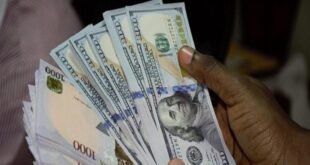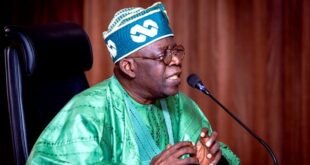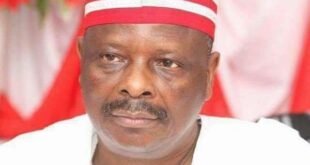…Suggest effective ways for distribution of palliatives
…Urge govt to update, unbundle social register
‘…Express fears politicians may hoard palliatives like Covid-19 time’
The removal of subsidies on petrol has raised the level of hardship nationwide as citizens anxiously await the take-off of the government’s palliative measures. BENJAMIN SAMSON in this report speaks with experts on how the government can effectively implement its palliative measures.
Following the removal of subsidies on fuel by President Bola Ahmed Tinubu on 29 may, some state governments have lready announced the payment of N10, 000 monthly for the public sector workers, some allowances for medical personnel and occasional distribution of food to the poor and most vulnerable households as well as free bus rides for students of tertiary institutions.
Similarly, in a nationwide address on July 31, President Tinubu announced his palliative plans for Nigerians to cushion the effect of the subsidy removal which include new a national minimum wage; N125 billion in funding for micro, small, and medium-sized enterprises (MSMEs); release 2, 000 metric tonnes of grains from strategic reserves to households across all 36 states and the Federal Capital Territory (FCT).
Others are the provision of 225,000 metric tonnes of fertiliser, seedlings, and other inputs to farmers; purchase of 3, 000 units of 20-seater Compressed Natural Gas (CNG) fuel buses, etc.
Charges to leaders, govt
However, in a chat with this reporter, a former president of the Association of National Accountants of Nigeria, Dr. Sam Nzekwe, said, “Nigerians have been confronted by severe hardships for about two months now due to the petrol subsidy removal and unification of exchange rates that have further spiked inflation. The situation is critical; the government has to roll out its palliatives now. Nigerians are still watching to see the roll-out of the interventions amidst the worsening hardship across the country.
“For any palliative option to be meaningful, it should not be selective, but one that would impact everybody. The effects of fuel subsidy removal are being felt by everybody irrespective of one’s socio-economic status. Hence, nobody should be discriminated against in the distribution of the palliatives.
“If the effects of fuel subsidy removal are on every citizen, then the government should think of cushioning plans that everybody will benefit from.”
On his part, the executive director, Foundation for Environmental Rights Advocacy and Development (FENRAD), Comrade Nnanna Nwafor, expressed doubts in the sincerity of state governments with the various palliative measures being promised.
He said he was not convinced that state governments were serious in rolling out any palliatives to cushion the biting effects of subsidy removal on the citizenry.
He advocated social welfare packages that every citizen would benefit from, but regretted that such programmes would be sabotaged or abused by the rich and wealthy.
“All these palliative measures being announced by governors cannot go a long way to addressing the suffering people due to insincerity, corruption and betrayals as well as the lack of data to ensure the most vulnerable persons are captured. I can see insincerity and the lack of trust fulfilling this promise.
“I am not too comfortable with the nature of the palliatives because they are not sustainable. For how long will the government continue to distribute food items to the poor? Instead of cash that they will give for some time, the government should add it to the workers’ salaries. Another big issue is how the palliatives will go round to reach non-public sector workers, or how the government will identify the very poor in a country without a proper database.
“The way forward for me is to distribute buses to all the states to convey passengers at reduced fares; ensure there is no electricity tariff hike for now; support farmers with farm inputs so that food prices can come down.
“In addition, the government needs to fix the roads for easy evacuation of farm produce from the hinterlands to the markets. The biggest palliative, however, will be the fixing of the nation’s refineries so that petroleum products will be readily available for local consumption and export. The government needs to revive the country’s moribund industries to employ the teeming masses. This will facilitate production, which in turn will encourage export and strengthen the Naira.”
Social register
Speaking with this reporter, a professor of Political Science at the University of Calabar, Essien Akpan, emphasised the immediate importance of updating and unbundling the social register.
He stressed the significance of capturing poor and vulnerable citizens to ensure cash transfers as part of palliatives, noting that these measures are crucial to cushion the impact of the federal government’s removal of subsidies on fuel.
“What modalities are on the ground to ensure that the targeted poor people will be the sole beneficiaries of palliative? Are there comprehensive data to know who these poor people are, where they are located and what is the number of people in each household? Will the disbursement of the cash be done by hand or via banks and if it will be done from house to house, who are those that will carry out the exercise and how trustworthy are they that the money will not miss? If payment will be via the bank, how many of these poor households even have a savings account?”
He also called for accountability in the distribution of palliatives, saying: “There is a need to unbundle the national social register and update it. The primary goal is to ensure that those who genuinely need assistance receive it. There are historical issues in Nigeria where such initiatives do not always reach the intended beneficiaries.
“Transparency and accountability are essential for ensuring the desired impact and relieving the suffering of those in need. Implementing palliatives in an accountable manner would help cushion the effects of subsidy removal on the citizens’ well-being, ensuring they can cope with the current challenges.
“We were all witnesses to past incidents during the Covid-19 period when essential supplies were kept in warehouses instead of reaching those in need, therefore proper accountability is crucial. Involving citizens in the distribution process can help ensure that the palliatives reach the intended recipients and are utilised effectively.”
Likewise, some Nigerians who spoke with Blueprint Weekend advocated practical measures to block governors from monopolising the federal government’s proposed palliatives to cushion the effect of petroleum subsidy removal.
They warned against monopolising the palliatives by governors to avoid a recurrence of poor implementation of the Covid-19 recovery packages and other social support programmes.
Mrs. Naomi Bitrus, a retiree, advised the federal government to involve other stakeholders to ensure fair and equitable distribution of the palliatives. Bitrus described the federal government palliatives as “good,” adding that the success of the initiative would depend on its implementation.
“The previous palliatives were hijacked or politicised during the implementation stage, this is why widows and physically challenged persons do not benefit from it.
“Governors alone should not be the ones to handle the implementation of the palliative,” she said.
Also, Yusuf Ibrahim, the chairman, Association of Non-Governmental Organisations (NGOs) in Abuja, said the poor implementation of the palliatives would derail the objectives of the initiative.
He said: “Leaving implementation in the hands of governors alone would be counterproductive because they might use political parties as yardstick for distribution of the palliatives.
“Many of the good plans by the federal government had been mis-implemented in the past; if the government will channel any resources or palliatives, let it be under the watch of many stakeholders.
“Private sectors, trade unions, religious and community leaders, civil society organisations (CSO) and other stakeholders should be involved in the process. This will protect IDPs and other vulnerable groups.”
An economist, Olumide Adesina, also has his doubts about the palliative register, saying it is likely to be weakened by political interference.
“The problem with this measure is that just a quarter of Nigerian citizens have BVN (56.4 million).The most vulnerable Nigerians can’t be captured, and the e-naira could have helped, but not many Nigerians are there,” he said.
Mohammed Adamu, a footwear dealer in Kubwa, in the FCT, was emphatic saying he does not trust the proposed palliative distribution project.
“I keep wondering how they identify the most vulnerable and low income citizens of the country. We seem not to have learnt anything. Is it the same politicians that hoarded palliatives that would be entrusted with another palliative?”
Mrs. Zainab Babaji, journalist, in her opinion, said, “It is not feasible. Considering how some other programmes such as the school feeding programme, social investment programme, etc, were managed, there were a lot of allegations of corruption and misappropriation where many people who were captured did not benefit from the programmes. Unless a structure is put in place to ensure prudence, the programme will not be effective.”
Another resident, Nura Salisu, lauded Tinibu’s plans to strengthen the manufacturing sector to increase its capacity, create jobs and boost productivity. He also commended the president for providing funds to support 75 enterprises with great potential to kick-start sustainable economic growth.
He said, “President Tinubu promised to spend N75 billion between July 2023 and March 2024 for that purpose.
“This is a welcome development, as each of the 75 manufacturing enterprises will be able to access N1billion facility at 9 percent per annum, with maximum of 60 months repayment for long term loans and 12 months for working capital.”
Experts’ views
Similarly, an economist and public analyst, Zadok Akintoye, said payment of extra money to civil servants by some state governments may be evidence of the knowledge deficit on how the economy works and how it would respond to such increases.
“Putting more funds in the hands of workers will not resolve the value-depletion of the Naira to other currencies, which has further worsened our economic situation. I disagree with the government increasing wages, but will suggest that they do what is required in tackling the widening exchange rate of the Naira to the dollar.
“Increasing wages only postpones the inevitable by tokenizing the core issues affecting our nation. In the short term, the government should remove all taxes on salaries of public servants as an emergency intervention to provide more funds to them at this time, reduce customs levies on goods and services essential to citizens wellbeing, increase levies paid on luxury items and tax the rich more, create new monetary policies that mitigate round tripping and effectively protects the Central Bank of Nigeria from being taken advantage of, support the Naira against the Dollar and fund the local government directly. The provision of buses and other consumables are not sustainable in the long term and would further plunge the country into an economic crisis.
“How can they determine who is qualified and who is not? And how many of the needy have bank accounts? Or is it meant only for the city dwellers, what of the villagers without bank accounts are they not Nigerians? There are so many unanswered questions, the same people continue to empower themselves whenever they need to rehabilitate themselves,” he said.
Way out
Likewise, Akpan charged public officials to change their attitude to reflect the times, saying a cost cutting wind must sweep through every nook and cranny of government, and all governments at all levels must champion the squeeze.”
He said: “The public want to see the sacrifices that the government and the leaders have made to champion the austerity measures.
“So far, the government has not shown any visible signs of austerity, N70 billion to the National Assembly, N30 billion to the Judiciary, the usual long list of appointments everywhere, nothing to suggest the government is willing to take its own medicine.
“The removal of subsidies is the easy bit. The government must see and remove the log with its own eyes. Right now it is so hypocritical. If the government doesn’t embrace manifest frugality, it might lose all moral authority to continue on this painful but necessary path.”
He added that sharing of money would result in having funds that would not be accounted for, arguing that there were no frameworks on how the indigent individuals would be identified; hence, the mechanism for sharing the fund had not been put in place.
“I think what Nigerians are looking for is relief in the area of transportation facilities. Nigerians are looking for relief in the area where potential services like electricity are stable, places where they can invest in food productions, areas where they can get relief in terms of healthcare.
“There are no frameworks on how to identify the vulnerable. Also, the mechanism for sharing the money is also not in place.”
Also speaking, the executive director of Foundation for Justice and Peace Building, Benson Udeh,said conditional cash transfers to the poor was a public policy intervention that was popularised by President Lula of Brazil when he came to office in 2002.
According to him, the policy in Brazil succeeded because, first, it has a clear goal of reducing hunger, breaking the generational cycle of poverty by mandating beneficiaries to keep their children in school, and driving consumption by increasing the purchasing power of poor citizens.
Udeh added that the president should set up an independent ministry and staff it with non-partisan experts who have veritable skills and competencies, which will collect relevant data, by working with local councils and building a central register of beneficiaries that are traceable and verifiable.
“The Buhari administration spent close to N500 billion on various kinds of palliatives and yet poverty and unemployment surged. And so while I have nothing against a sensible intervention for the most vulnerable Nigerians, the plan to distribute cash and food to households is not only poorly thought out, it is grossly inadequate to deal with the scale of the myriad of issues confronting this country,” he said.
According to him, the best way to cushion the hardship the people are dealing with is to define clearly what the chief issues are.
“In my opinion, it is inflation – particularly food inflation, which has been triggered by the removal of petrol subsidies. Another issue is high unemployment and low wages.
“For food inflation, because households expend over 65 per cent of their income on food alone, there should be direct intervention that improves the production of food that is support farmers with irrigation, fertilisers, and improved security, and reduces the cost of food transportation by either providing mass transportation that moves food from farmlands to markets and within the city or proving energy subsidies for food transporters,” he said.
 JamzNG Latest News, Gist, Entertainment in Nigeria
JamzNG Latest News, Gist, Entertainment in Nigeria









